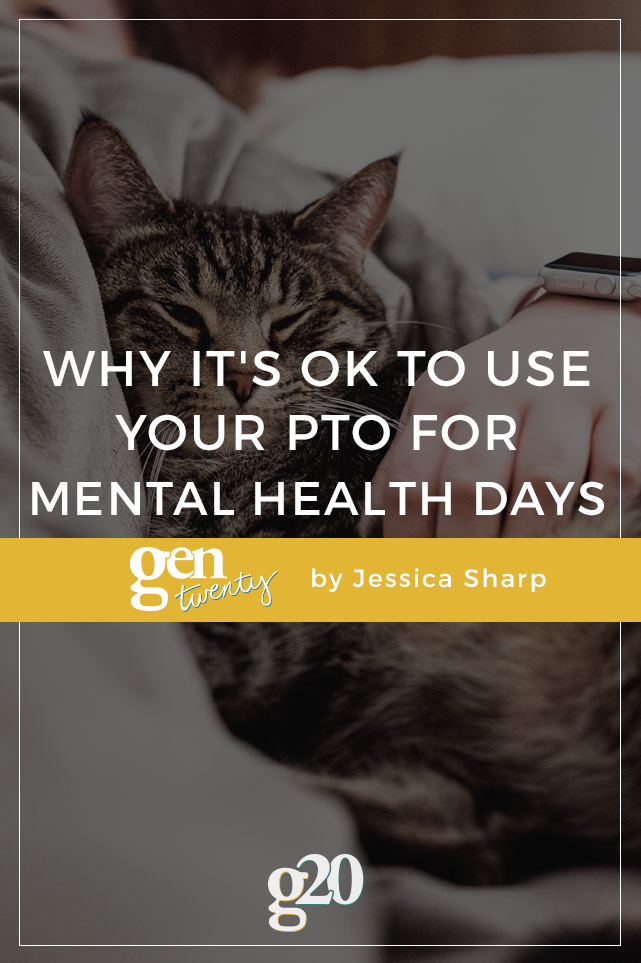
Ten years ago Arianna Huffington, founder of The Huffington Post, was checking emails on her cell phone when she collapsed.
She woke up in a pool of blood with a broken cheekbone and a cut on her eye. She collapsed from exhaustion. Literal exhaustion. She had been working 18 hour days and running herself ragged to build her empire.
While she was wildly successful, she was far from healthy. This was a wake up call for her and shifted much of her life’s work. I hope this can be an event that we can all learn from and avoid.
If you have a full-time job you likely have (or will have if you are still new) vacation days or PTO (paid time off) or some sort of policy that allows you to take time off.
I have traditionally thought about these days as days that should be reserved for vacation or severe illness. Being a teacher changed my mind about that.
When I was teaching, which let me tell you was the most difficult job I have ever had, my in-school mentor told me I needed to take a mental health day.
Her words were important to me since they freed me up to take some time for me. I was stressed out, not sleeping well and working all the time. I needed some time to sit and relax but I had no upcoming plans for vacation.
Did this mean that I couldn’t take time off to relax? I thought it did, but it did not! I still needed to take that time even if I didn’t have the ability to take a full-fledged vacation.
Why should you use PTO for mental health days?
Better Health lists some of the symptoms of fatigue as moodiness, impaired decision-making and judgment, poor concentration and low motivation. None of these are good for your personal life but can be even worse for your career.
For me, fatigue and stress (that has similar symptoms of fatigue) were the reasons I needed to use my vacation time to recharge and relax.
You may have something at work or in your personal life that is stressing you out. You may be tired. All of us have different things going on and will have different reasons for needing a break.
Regardless of the reason, you should feel empowered to take a day or two off to recharge. This will have a benefit to your employer as well as to you.
How can it help you? What should you do?
Actually relax when you take the time off. Don’t check your email or stress yourself out more. Relax! That will look different for everyone.
For me, it looks like sleeping in, watching Netflix, and not checking my phone. While what you do to relax may be different, do something that you enjoy like hiking or spending time with loved ones.
And please don’t check your email if you can help it. Taking this time off will allow your brain and body time to relax and literally recharge.
It will help you put things in perspective and will allow you to go back to work and your life with a more positive outlook. Who doesn’t want that?!
A few other things…
- Depending on the process for taking a day off, make sure you follow that policy and give your supervisor a heads up.
- DO NOT feel bad about taking a day off for yourself. It took me a while to feel okay with this, but I have come to learn that I am my most important asset. This means it is critical that I take the time to care for myself to be my best self and the same is true for you. I am empowering you to take time off for you!
- Disclaimer: If you feel like you constantly need to take a day off for your mental health, you may need to do something a little different. If you are constantly stressed out you may want to look into therapy, a change in work or a change in something about your life. My life coach Andrea Owen (who I am obsessed with) just released a podcast episode on her podcast Your Kick Ass Life about how to pick a therapist. If you decide you want to go that route, check it out.
PS: The GenTwenty family is a huge advocate of infusing self-care into your normal routine (in addition to taking the occasional day off for yourself). Check out our section on this important topic. Enjoy!
I would love to hear your thoughts about taking PTO for your mental health. Are you for it or against it? Have you done it? Will you? I know I will 🙂
